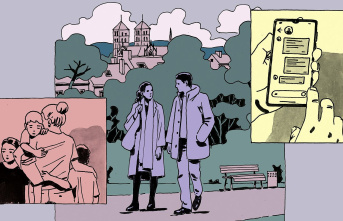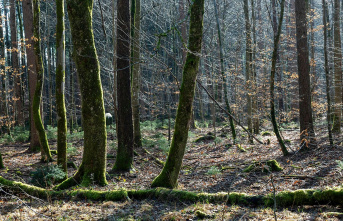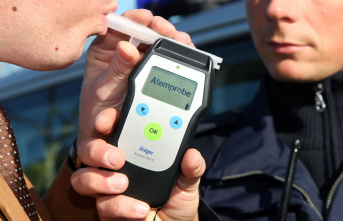The area is known beyond Berlin as a focal point and nightlife district: A new audio guide tells the story of sex work around Kurfürstenstraße. "The tour is for anyone interested in Berlin's history," said Caspar Tate, a sex worker and one of the curators of the Berlinhistory association's project. The tour is included in the free app of the same name and goes through twelve stations in the Bülowkiez.
It starts at the Bülowstraße underground station and its construction in 1885 and ends with a future outlook at the Twelve Apostles Church. In the chronological walk you get to know the "Eldorado", which was a well-known "transvestite bar" in the 1920s. A nightclub in which mainly queer people found refuge - i.e. people whose sexual or gender identity deviates from social norms.
"We wanted to create a point of contact for the neighbors who would not otherwise want us here. Also because there has been a lot of violence against us lately," says Emma Pankhurst, who herself works in a brothel in the neighborhood. It's not really her name, but calls herself like the women's rights activist from the 19th century. At the premiere she leads through the city dressed like in 1880.
The tour shows the area, which is known as a hard place because of the street prostitution, from a different perspective and opens up new perspectives on a topic afflicted with many clichés. There are no precise figures on how many people earn their money with sex work in Berlin or in the Bülowkiez. "The police estimate that around 400 people work on the streets in the neighborhood," says Caspar Tate.
According to the Senate Department for Health and Equality, almost 1,600 sex workers are currently registered in Berlin. According to Tate, sex work is a self-chosen generic term for people who offer erotic services. The term prostitution is derogatory and is therefore rejected by most sex workers.
The audio tour is primarily intended to increase the visibility of sex workers. "We've always been everywhere" - that's the title of the tour. It should make it clear that this work has always been part of the Berlin cityscape - even if historians like to ignore it, says Pankhurst. The tour was developed by a sex worker organization, the Berlin History App and the Schwules Museum. "The overlaps between sex workers and queer people have always been there," said project manager Birgit Bosold from the board of directors of the Schwules Museum, which can also be found in Schöneberg. This was also a reason for the choice of location.
Gay Museum PM












